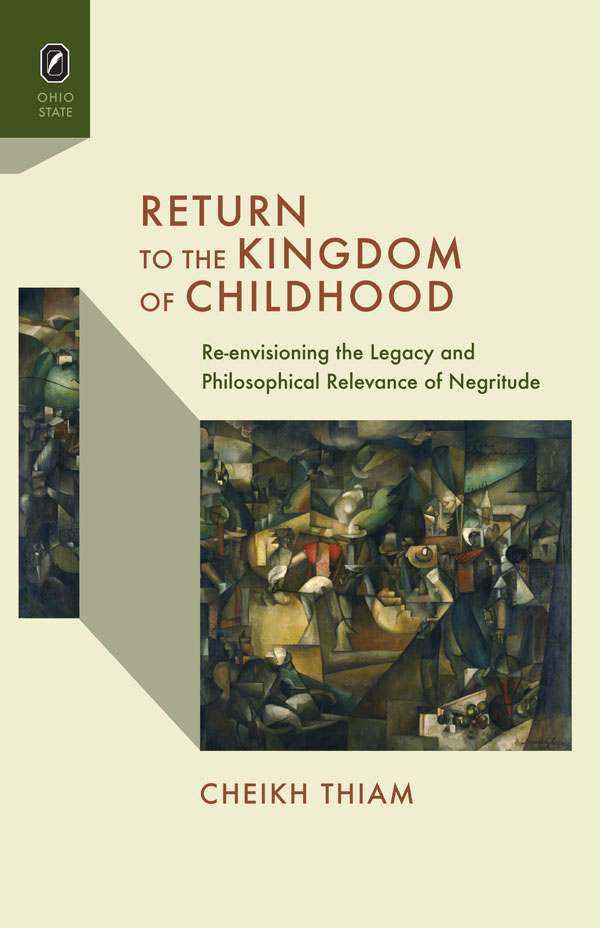Return to the Kingdom of ChildhoodRe-envisioning the Legacy and Philosophical Relevance of NegritudeCheikh Thiam |

3/20/2014 Literary Criticism/ 150 pp. 6x9 
$49.95 cloth 978-0-8142-1250-9 Add cloth to shopping cart $19.95 paper 978-0-8142-5295-6 Add paper to shopping cart $14.95 CD 978-0-8142-9354-6 Add CD to shopping cart Shopping Cart Instructions Review/Change Shopping Cart & Check-out | |||
|
Explore More “Négritude,” Stanford Encyclopedia of Philosophy Donna V. Jones, The Racial Dimension of Life Philosophy: Négritude, Vitalism, and Modernity Souleymane Bachir Diagne, African Art as Philosophy: Senghor, Bergson, and the Idea of Negritude |
“After reading Cheikh Thiam’s book, I believe it will be an excellent addition to the re-surging
and growing literature on Léopold Sédar Senghor. Thiam’s scholarship opens up the possibility
of situating Senghor’s work at the center of the debate in/ “Return to the Kingdom of Childhood is well written, clearly and powerfully argued, with an impressive combination of close reading, theory, and more personal commentaries. Cheikh Thiam demonstrates a thorough knowledge of L. S. Senghor’s extensive life, work, and ideas. His powerful and insightful argument will open a new conversation on Negritude in Panafrican, African, French, and postcolonial studies.” —Lydie E. Moudileno, professor of Romance languages, University of Pennsylvania Return to the Kingdom of Childhood: Re-envisioning the Legacy and Philosophical Relevance of Negritude examines the philosophy of Negritude through an innovative analysis of Léopold Sédar Senghor’s oeuvre. In the first book-length study of Senghorian philosophy, Cheikh Thiam argues that Senghor’s work expresses an Afri-centered conception of the human while simultaneously offering a critique of the Western universalization of “man.” Senghor’s corrective, descriptive, and prescriptive theory of humanness is developed through a conception of race as a cultural manifestation of being. Thiam contends that Senghor’s conception of race entails an innovative Afri-centered epistemology and ontology. For Senghor, races are the effects of particular groups’ relations to the world. The so-called “Negroes,” for example, are determined by their epistemology based on their fluid understanding of the ontological manifestations of being. The examination of this ontology and its ensuing epistemology, which is constitutive of the foundation of Senghor’s entire oeuvre, indicates that Negritude is a postcolonial philosophy that stands on its own. The hermeneutics of Senghor’s race theory show that the Senegalese thinker’s pioneering postcolonial philosophy remains relevant in the postcolonial era. In fact, it questions and expands the works of major contemporary African-descended scholars such as Paul Gilroy, Edouard Glissant, and Molefi Asante. Thiam’s approach is thoroughly interdisciplinary, combining perspectives from philosophy, literary analysis, anthropology, and postcolonial, African, and cultural studies.
| |||


